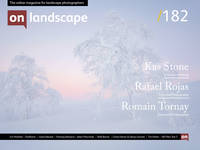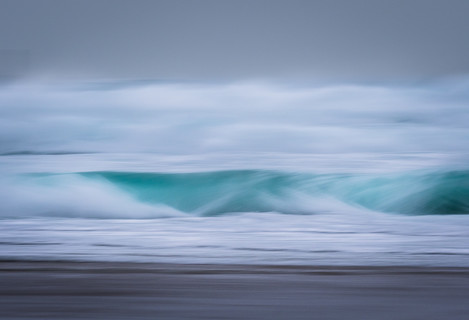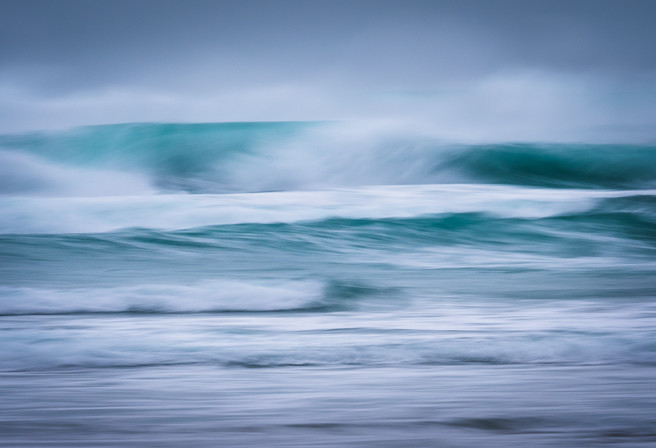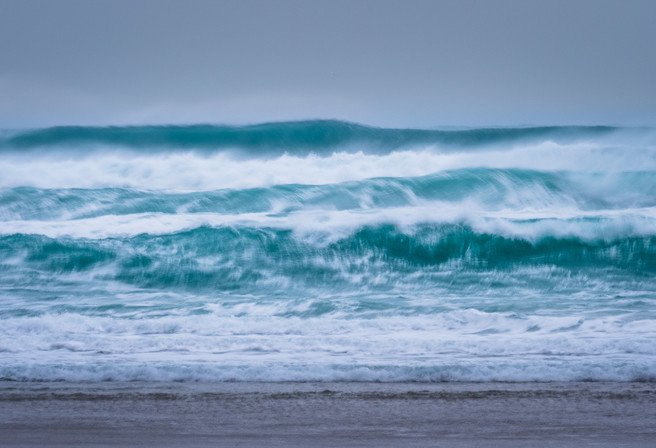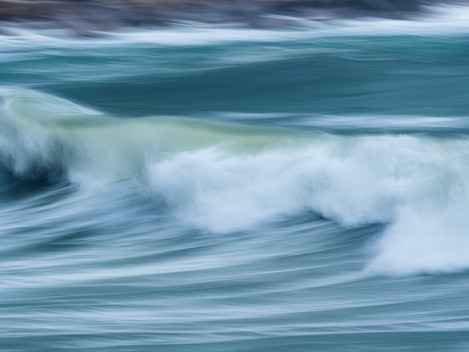Framing abstracts rather than conventional views

Adam Pierzchala
Now retired, I have more time to enjoy being out with my camera looking for scenes and subjects that pique my interest, especially coastal, woodland and close-ups. Although I still have several rolls of 35mm and MF film in my freezer, I shoot almost exclusively digital now
In mid-December 2018 I had the good fortune of being on a workshop in West Cornwall led by David Ward. I had been to Cornwall 5 years previously and 6 years before that but had never come away with images that I really liked. Certainly, that first visit was very early in my photographic development and at that time I was definitely learning to “see”, but I could and should have done better on the second visit! This latest trip last December went far better and I am very happy with what I got, but one day, in particular, produced surprises: not just in the images I made, but also in what I felt while making them in the most inclement and difficult weather conditions, how I approached the photography and how I departed from my usual tripod-mounted “slow photography”.
That day had been consistently forecast for about a week to be very rainy with storm-force winds and indeed the night before was already very stormy with ferocious wind and rain hammering against the windows. The morning started depressingly dark and grey; looking down to the sea from our clifftop house at Sennen we could see it raging, covered with white spume and froth, enormous waves barrelling in from the Atlantic.
We gathered our gear and grouped at the sea end of the wall. Although the wind was driving the spray mostly away from us across and along the cove, raindrops still settled on the lens despite frequent wiping before each shot. Using grad filters was basically futile, or at least I had no success. I quickly got frustrated as frame after frame was spoilt and I ended up deleting all shots taken with the wide angle zoom. I even briefly thought of going back to sit in the bus and watch the others battle it out. But I have to admit, it was exhilarating being so close to the violent waves thundering into the cove, I didn’t want to miss out. I moved a little further back into a corner of the wall and changed to a telephoto zoom with a relatively deep lens hood, giving the front element more protection.
As I stood watching the waves charging in, suddenly and in very quick succession I thought panning/tracking, slow shutter speed, ICM – far removed from my usual contemplative style, tripod-mounted camera, remote release, grad filters etc! And even if I still had some rain spots, well it’s all part of the atmosphere! After a handful of frames including the harbour wall (shooting at around 80-100mm full frame equivalent – I was using micro 4/3), I concentrated on the abstract shapes and patterns in the water using around 150-300mm equivalent.
The rain slowly but only partially petered out and we went out again in the afternoon, this time to Gwynver beach below our house, at the bottom of the cliffs. We walked out to the headland to try and catch big waves crashing against the rocks, but once again I found the wind and spray were too much of a hindrance. I left the others and walked back maybe only 70-80 metres, enough to get out of the wind roaring around the headland. In contrast to the morning, I decided to stay well away from the waves: they reared up out at sea, then crashed on the beach as the wind literally whipped off their tops. The spray would surely prevent me from getting clean images. At first, I tried a few frames with foreground rocks on the beach, but they weren’t successful and I decided to again go for abstracted water. Even with my telephoto set to its maximum 300mm equivalent, I was capturing much wider views than in the morning and so used far more horizontal panning as my main ICM technique: the results from the vertical ICM were simply nowhere near as good. With the shutter speed set mostly at 1/6 sec, I caught the layers of waves while emphasising their shapes.
So there we have it, one day at the seaside in difficult conditions; using techniques that I knew about but had never tried in combination like this, framing abstracts rather than conventional views, freely and deliberately moving away from trying to reproduce what the eye saw and going for depicting the exhilarating and visceral experience I had. From my perspective, it worked and the images I have remind me of that deeply felt experience rather than merely the view.

